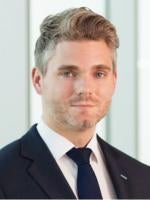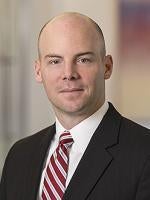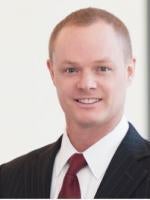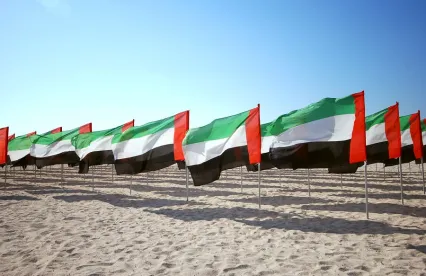In an earlier post, here, we examined Law No. 20 of 2018 on Anti-Money Laundering and Combating the Financing of Terrorism and Illegal Organizations, the new Federal AML Law enacted by the United Arab Emirates (“UAE”) to ensure best practice anti-money laundering and counter-terrorist financing measures.
In this post, we consider how the UAE’s two financial free zones, established in the Emirates of Dubai and Abu Dhabi, which both possess their own civil and commercial legal frameworks, inclusive of court systems modeled closely on international standards and principles of common law and, importantly, autonomous financial services regulation, have followed suit by augmenting their financial crimes regulatory frameworks.
New DIFC Regulatory Law
Contemporaneously with the issuance of the Federal AML Law, the Dubai International Finance Centre (“DIFC”), which was established in 2004, enacted DIFC Law No. 6 of 2018 (the “DIFC Regulatory Amendment Law”). The DIFC Regulatory Amendment Law is designed to support the alignment of the DIFC’s anti-money laundering and counter-terrorist financing regime with international best practices.
Under the amended law, Designated Non-Financial Businesses and Professions (“DNFBPs”) are prohibited from operating in or from the DIFC absent registration with the Dubai Financial Services Authority (“DFSA”), the free zone’s independent financial services regulator, which has adopted a supervisory approach modeled on the United Kingdom’s former Financial Services Authority (“FSA”).
To register with DFSA, DNFBPs must identify Money Laundering Reporting Officers (“MLROs”), senior management and, importantly for the promotion of transparency and accountability, ultimate beneficial owners (“UBOs”). The amended law also enhances customer due diligence (“CDD”) requirements for DNFBPs and empowers DFSA to suspend or withdraw the registration of DNFBPs in breach of any applicable laws or rules.
The DIFC’s new Ultimate Beneficial Ownership Regulations define UBOs as persons owning or controlling, directly or indirectly, at least 25% of share capital or voting rights, or persons with the right to appoint or dismiss a majority of directors. Registers of UBOs must confirm full legal names, dates of birth, nationalities, residential addresses, passport or other government-issued identification numbers, and the dates on which persons became and, as applicable, ceased to be UBOs. Registers of UBOs must be maintained, with all changes to be filed within 30 days.
Updated ADGM Regime
Following the success of the DIFC, a new financial free zone, the Abu Dhabi Global Market (“ADGM”), was established in the capital city in 2015. Just like the DIFC, ADGM recently has enacted updates to its regulatory framework that combat money laundering, terror financing, and unlawful organizations.
The newly enhanced ADGM AML regime requires that relevant persons, including all DNFBPs that operate within ADGM, be registered with the Financial Services Regulatory Authority (“FSRA”). In addition, ADGM has created a Financial Crime Prevention Unit (“FCPU”).
Additional Considerations
The United Nations (“UN”) Conference on Trade and Development (“UNCTAD”), the body of the UN Secretariat responsible for trade, investment, and development, reported in its World Investment Report 2019, here, that USD 10 billion of Foreign Direct Investment (“FDI”) flowed into the UAE in 2018. The UAE’s continued efforts to ensure its financial sector strongly complies with international best practices are critical to retaining and growing FDI.
The UAE’s financial free zones are key to those efforts. In fact, Dubai and Abu Dhabi have amassed very large business communities in relatively short time frames and, just last month, were ranked eighth and thirty-second, respectively, on the Global Financial Centers Index (“GFCI”), here. This represents the first time any financial center within the Middle East, Africa, and South Asia (“MEASA”) region has featured in the top ten. Only New York, London, Hong Kong, Singapore, Shanghai, Tokyo, and Beijing, in that order, sit ahead of Dubai. Dubai’s ranking centers, in large part, on the DIFC being the largest, most developed, and most stable, MEASA financial ecosystem. GFCI specifically recognizes DIFC’s strength across all five areas of competition between worldwide financial centers: business environment; financial sector development; human capital; infrastructure; and reputation.
Abu Dhabi is likely to continue quickly climbing the rankings as well, with ADGM positioning itself as one of the world’s leading FinTech hubs: a destination of choice for innovators in financial technology and, more specifically, crypto asset investors. Indeed, FSRA recently granted various cryptocurrency exchanges in-principle approval to operate. This is part of a concerted effort on the part of Abu Dhabi to embrace emerging technologies. Indeed, Khaldoon Al Mubarak, Group Chief Executive Officer and Managing Director of Mubadala, a state-owned holding company that can be characterized as a sovereign wealth fund, said that the company is “activating its investments and relationships to establish Abu Dhabi as the technology hub for the Middle East and North Africa region.”







 />i
/>i

